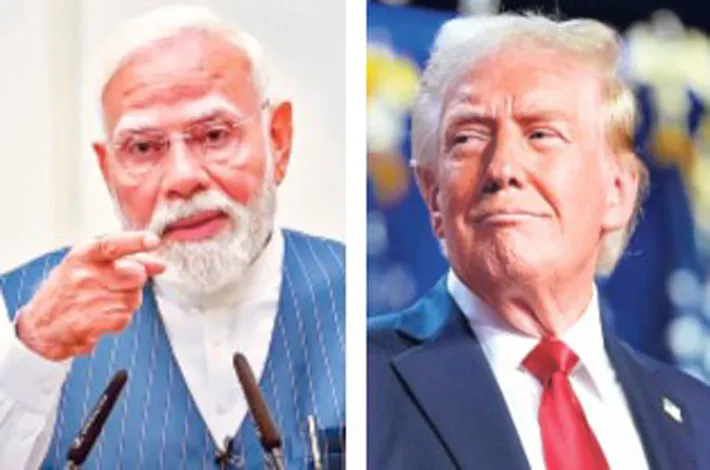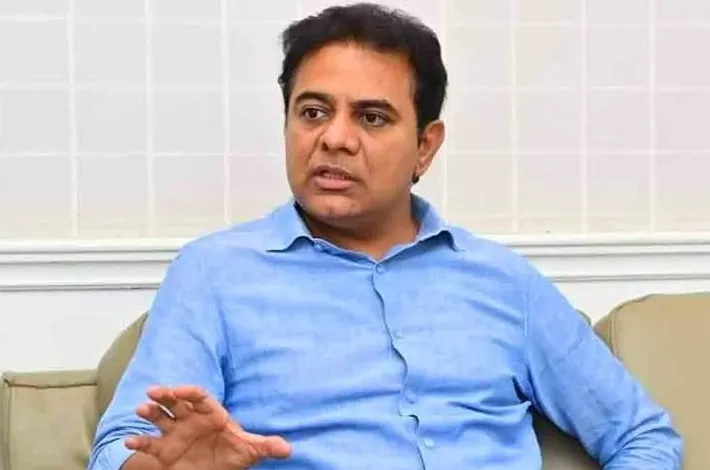Can India trust Trump?
12-09-2025 12:00:00 AM

- Tensions in U.S.-India trade relations have intensified following reports that the White House is urging the European Union to impose 100% tariffs on India and China over their trade in Russian oil
- However, same Trump, in a recent social media post described Indian Narendra Modi as a "very good friend" and expressed confidence in reaching a successful trade agreement. However, analysts suggest this conciliatory tone may be an attempt at damage control following earlier aggressive rhetoric
- One version is that trump’s approach is highly transactional, prioritizing short-term wins over long-term relationships. It noted that Trump’s unpredictability keeps partners off balance
- Another opinion being highlighted is that Trump’s team may be playing to domestic audiences while simultaneously seeking to maintain diplomatic channels
- It is suggested that India’s firm stance against discriminatory trade measures has forced a re-evaluation in Washington. It is also considered that if the EU and U.S. brought their imports from Russia to zero, India might consider it
In a recent Truth Social post, President Trump described Indian Prime Minister Narendra Modi as a "very good friend" and expressed confidence in reaching a successful trade agreement.
Tensions in U.S.-India trade relations have intensified following reports that the White House is urging the European Union to impose 100% tariffs on India and China over their trade in Russian oil. This development comes amidst a backdrop of mixed messaging from the Trump administration, with President Donald Trump expressing optimism about concluding a trade deal with India while his trade adviser, Peter Navarro, issues provocative statements.
However, analysts suggest this conciliatory tone may be an attempt at damage control following earlier aggressive rhetoric. During his first term, Trump labelled India the "tariff king" and withdrew Generalized System of Preferences (GSP) benefits in 2019, signalling a history of trade friction.
A senior associate professor at King’s College London, described Trump’s approach as a "belligerent tactic" of alternating between bullying and offering friendship. He warned that such tactics risk damaging the broader U.S.-India strategic partnership, which has been carefully built over decades. He expressed concern that Trump risks blowing big holes in a bilateral relationship that successive U.S administrations have spent two and a half decades trying to build. Another author and columnist highlighted the strategy and clarity in U.S. intentions, suggesting that Trump’s team may be playing to domestic audiences while simultaneously seeking to maintain diplomatic channels. She noted that Peter Navarro’s inflammatory remarks targeting specific communities within Hindu religion could be aimed at appealing to Trump’s base, while the President himself seeks to project a more diplomatic stance.
A former Indian Ambassador to France emphasized that the proposed EU tariffs are unlikely to materialize unless all parties, including the U.S. and China, uniformly reduce their reliance on Russian imports. He suggested that India’s firm stance against discriminatory trade measures has forced a re-evaluation in Washington. He also opined that if the EU and U.S. brought their imports from Russia to zero, India might consider it. “But short of that, India feels discriminated against,” he said.
A former deputy chief of mission to the EU, noted that India’s refusal to buckle under pressure has distinguished it from other nations like Japan and South Korea, which have faced similar U.S. trade demands. He pointed to India’s strengthened position within the BRICS bloc, particularly after recent summits, as a counterbalance to U.S. coercion. He said that India has stood firm in the face of threats, unlike other countries.
Arun Kumar Sharma, a senior associate at the Centre for Strategic and International Studies, described Trump’s approach as highly transactional, prioritizing short-term wins over long-term relationships. He noted that Trump’s unpredictability keeps partners off balance. Kumar suggested that 99% of the agreement is already finalized, with India’s red lines on agriculture, dairy, fisheries, and Russian oil firmly respected. However, Trump’s insistence on a deal that allows him to claim victory may require careful diplomatic maneuverings. Also pointed out was that other countries, such as Japan and the EU, have secured deals by promising large investments in the U.S., though these are often non-binding intentions. India, however, has maintained a sector-by-sector approach, avoiding grandiose pledges. “The actual trade deal is serious, but the headline side is what Trump wants.
As the U.S. and India navigate this complex landscape, the broader strategic partnership, particularly in the Indo-Pacific, remains a critical factor. Concerns have emerged about the Trump administration’s shift from using "Indo-Pacific" to "Asia-Pacific," potentially signaling a reduced emphasis on India’s role in regional strategy.
Nonetheless, foreign affairs experts expressed hope that structural pressures would push both nations toward reconciliation, citing past trade hiccups that eventually led to deeper cooperation. With India holding firm and Trump’s team balancing domestic posturing with diplomatic outreach, the coming weeks will be crucial in determining whether a mutually beneficial trade deal can be reached, or if the relationship will face further strain.








